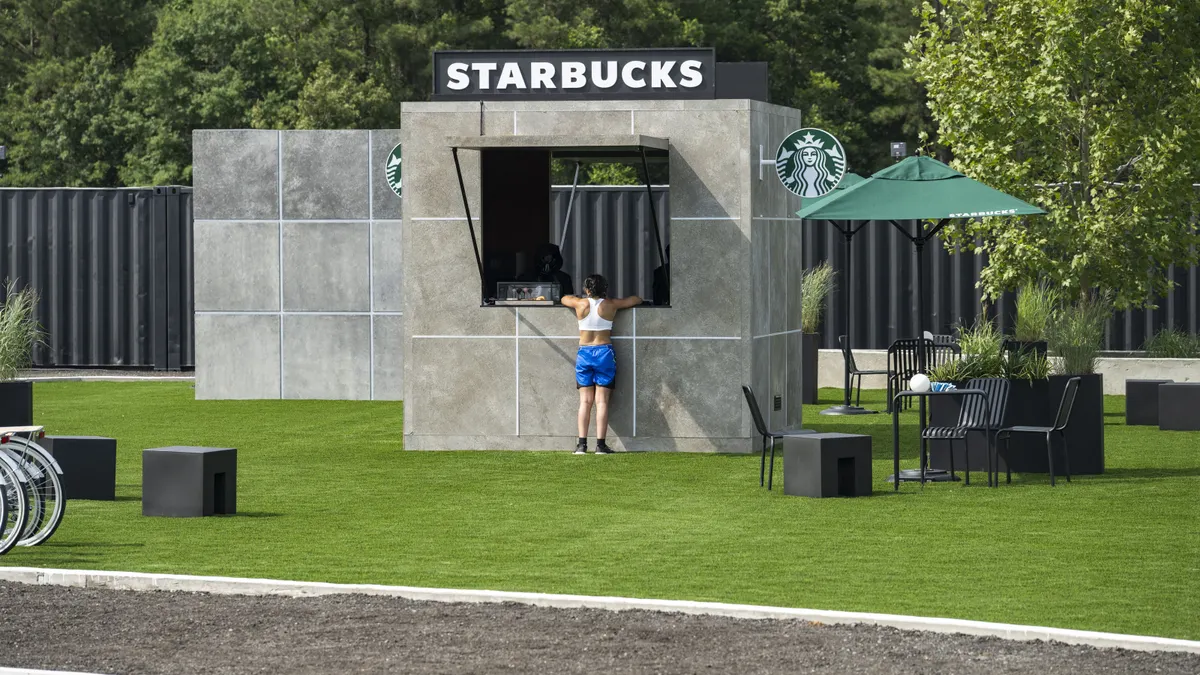In September, Kraft Heinz rolled out its much-anticipated new business strategy to reinvest in brands and to use a platform-based approach for products and the spaces in which they compete.
CEO Miguel Patricio and his leadership team crafted the strategy and established the basic tenets by the beginning of 2020 — before the coronavirus pandemic upended business and consumers' everyday lives. Kraft Heinz first planned the rollout for early in the year, but then initially delayed it so then-new U.S. Zone President Carlos Abrams-Rivera could provide input. As the pandemic made most meetings virtual, the company rescheduled an in-person investor conference to discuss the new strategy slated for the spring to an online event in the fall.
But despite those delays, and in spite of the pandemic's radical effects on consumer behavior, leaders at Kraft Heinz are sticking to their strategy.
"The approach we're taking is a much more holistic, total business approach with our customers, which is really about elevating our capabilities and investing in places where we're gonna drive category and platform growth: investments and insights in category leadership, omnichannel thought leadership and partnership, better planning processes and tools, and stronger collaboration and transparency around supply chain and reliability," said Cory Onell, Kraft Heinz's president of U.S. sales. "Those are kind of agnostic from the pandemic. Those are things you just have to do to be successful."
Onell is one of three new executives hired in August to complete the company's U.S. leadership team and put in place people who can execute the company's strategy. The pandemic may be the ultimate test of how well the approach works. U.S. Chief Growth Officer Sanjiv Gajiwala — another one of the CPG giant's August hires — said shifts in consumer behavior during the pandemic, as well as the change in how the company is presenting itself and its brands, are working together to make Kraft Heinz's growth stronger after the threat of COVID-19 has passed.
"We think that consumers are ... rediscovering new occasions at home," Gajiwala said. "They're rediscovering trusted brands that they hadn't necessarily engaged with in quite some time, and I think they're finding that those can have value in their lives. I think that some of those behaviors are ones that we've seen over the past few months and I believe that ... some of those behaviors will continue to stick and be a part of their lives going forward."
From pantry loading to preferred products
From a sales standpoint, it's been a great growth year for Kraft Heinz.
The company's most recent earnings report shows U.S. sales were up 7.4% in the quarter that ended in September compared to a year ago. That's just a fraction less that the U.S. sales growth rate of 7.5% for the first nine months of 2020. All of the company's platforms — Taste Elevation, Easy Meals Made Better, Real Food Snacking, Fast Fresh Meals, Easy Indulgent Desserts and Flavorful Hydration — are seeing varying levels of sales growth.
"Consumers are gravitating towards big brands and our retail partners are reassessing assortment with availability and velocity, a key determinant for it," Patricio said on a call with investors about the earnings report. "And consumers are increasingly choosing brands that can better align with their values. These consumer trends are tailwinds, causing us to turn more confidently optimistic in the near term. The actions we have already taken to put our operating model in motion, and the things that we needed to fix the most heading to our turnaround, are many of the same things needed to adapt to an unpredictable environment with faster, greater changes in the consumer demand."
Part of the growth this year can be attributed to consumers stocking their pantries as coronavirus-related stay-at-home orders began in March. But that doesn't explain everything.
Kraft Heinz has a 97% penetration rate, Onell said — meaning the overwhelming majority of homes in the United States has at least one of the company's products in its refrigerators or pantries. The pandemic has shifted most consumers' ways of life, and Kraft Heinz's brands have been there for that shift, company officials said. Kraft Heinz's brands — ranging from Velveeta to Oscar Mayer to its namesake ketchup — have been at the center of meals for decades. With the pandemic forcing more consumers to cook at home more, Gajiwala said these brands have taken on renewed importance and prominence in many kitchens.
Part of the reason Kraft Heinz is seeing a renaissance, Gajiwala said, is the company's renewed focus on the consumer as part of its new strategy. Kraft Heinz employees have broken output records to keep shelves stocked with sought-after products during the pandemic. At the same time, through a combination of marketing, messaging and decades of trust, consumers have rediscovered the company's brands.
Gajiwala said one of the biggest ways Kraft Heinz is zooming in on the consumer: looking at where they are, what they are doing and how they could use the company's products. One brand that has been the focus of different kinds of campaigns is Philadelphia Cream Cheese. The brand's repeat buy rate is now up to 23%, he said. And while consumers are still using the spreadable cheese as a cheesecake ingredient and bagel spread, they're seeing more ways to make it part of their meals, Gajiwala said.
"The approach we're taking is a much more holistic total business approach with our customers, which is really about elevating our capabilities and investing in places where we're gonna drive category and platform growth: investments and insights in category leadership, omnichannel thought leadership and partnership, better planning processes and tools, and stronger collaboration and transparency around supply chain and reliability. Those are kind of agnostic from the pandemic. Those are things you just have to do to be successful."

Cory Onell
President of U.S. sales, Kraft Heinz
Kraft Heinz has also adapted its offerings to the pandemic consumer's preferences. For example, Gajiwala said that consumers of all ages have rediscovered Kraft Macaroni & Cheese, which some may have considered a children's product. So Kraft Heinz is developing variations suited for grown-up tastes: Its new Mac & Cheese Big Bowl offers a convenient, larger portion size for an older adult.
"That set of solutions to help our brands appeal to a broader set of consumers — the Mac & Cheese Bowl being just one of those examples — is a great sense of how that's going to change," Gajiwala said.
Growth for the future
The basic tenets of Kraft Heinz's strategy — restructuring products into consumer-centric platforms, modernizing and optimizing the supply chain, paying more attention to what consumers need and concentrating on bigger innovations — go to the heart of what the company does, Onell said.
While some of the changes seem like they are beginning to bear fruit, the company is already leaning into others to drive future growth. For example, Kraft Heinz is increasing its marketing spend by 30% as it seeks to understand how consumers are connecting to its brands, and what they think about their functional and convenience benefits.
One creative approach that Gajiwala would like to see more of is exemplified by a recent Philadelphia Cream Cheese campaign that spoofs video game consoles. It touts the launch of The Philly Series 5, which it describes as "a stunning advancement in cheesecake technology." In reality, it is a cheesecake-making kit.
"We want to be a little bit more nimble and we want to be more connected to culture than we have been in the past and [we want to be] producing creative and engaging with our consumers in lots of different ways," he said.
Kraft Heinz is also shoring up perceptions of its brands. This includes addressing pre-pandemic accusations that its products are too processed. The company has been working to clean up and improve the ingredients and nutrition of its existing products for years, and is continuing this push in the new strategy. It has pledged to put about 40% of its R&D effort toward product renovation, cleaning up labels and making iconic brands more natural.
But Kraft Heinz is also doing more to play up how existing brands fit today's trends. Gajiwala noted that Planters nuts are not only made with few ingredients, but also described them as a plant-based and better-for-you snacking choice. Philadelphia Cream Cheese is made with five ingredients. And the company's Primal Kitchen brand, which it purchased last year for $200 million, fits right into current consumer trends with its keto and better-for-you sauces, bars and frozen meals, he said.
The company is working to elevate brands that happen to fit into these hot trends, as well as put its no sugar and no sodium products into the forefront. Onell said he is confident Kraft Heinz will perform well as consumers transition from pandemic comfort food to trends more focused on health and wellness.
"I'm definitely not scared by that," Onell said. "Our portfolio is great in both spaces."
Many food companies have been paring down their SKUs this year, both to optimize operations and increase production of their most in-demand products during the pandemic. At Kraft Heinz's investor day presentation in September, Abrams-Rivera said the company had already eliminated more than 1,100 existing SKUs — about a fifth of its total business — in just a few months of strategic review.
"Consumers are ... rediscovering trusted brands that they hadn't necessarily engaged with in quite some time, and I think they're finding that those can have value in their lives. I think that some of those behaviors are ones that we've seen over the past few months and I believe that ... some of those behaviors will continue to stick and be a part of their lives going forward."

Sanjiv Gajiwala
Chief growth officer, Kraft Heinz
At a presentation this month at the Morgan Stanley Global Consumer Conference, Abrams-Rivera said the company is still thinking a lot about innovation for the future, even though it is working currently on nearly a third fewer innovation projects than it has in the past. Some sizable innovation is slated to hit in 2021, he said, with more coming in the following years.
With the new strategy, Kraft Heinz is working on fewer — but bigger — innovations. The company has been laying the groundwork for new innovation to stick, improving marketing, supply chain and sales execution, Abrams-Rivera said at the virtual conference. He gave no specific details about projects currently in the pipeline.
"I am confident that as we are doing right now the work to create the right fundamentals in the business, the innovation that is going to come out is one that is going to be more sticky," Abrams-Rivera said. "And it's going to be based on consumers' real insights about what they're looking for and in a collaboration with our retailers that we haven't done in the past."
Gajiwala said he is excited about all of the possibilities.
"There [are] dimensions in flavor," he said. "There are opportunities to innovate in texture. There's the transformation of our organization, and how we show up in market, and how we show up in store, and just all of the touch points from when a purchase is first entering the purchase funnel, all the way through to when they are post-purchase and enjoying their product at home. I think we have so many opportunities to change all of those things or accelerate some things that are already happening. I think you'll see us push forward on a lot of different areas."
Even as the public starts to get vaccinated for COVID-19 and an end of the pandemic is in sight, Gajiwala predicts that for the next couple of years, more people will be spending more time at home.
"We've got a lot of great, iconic trusted brands that we believe consumers are going to continue to seek out and look for," Gajiwala said. "I think all those things will help us retain a lot of the households that were sort of new to Kraft Heinz brands and categories over the last few months. We're optimistic that will be something that continues, and those consumers will stay with us."





















